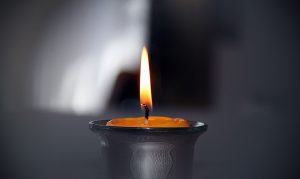The Things We Cannot Change
Sonya is saying that there is more to process. She and her partner are here for couple’s therapy, after a fight that has left them both tense and guarded for days now. We are attentive, her partner and I, both listening, but I sense we each have some confusion now. Sonya is tearful, forehead tight, chin trembling. She is clearly feeling something very important, but the words are repeats, going over the same story again now. Her partner assures her again that he is sorry, that he has heard her, that he will try to not make the same careless mistake again now that he sees how it has hurt her. I sense that she believes his sincerity and caring. But there is something else needed. Her eyes are big, looking to him, looking to me. I ask, “Is there more you need to say? Something more you need to hear?” And now confusion flickers for her too. There is something more, but what?
“You just wish it could be different, huh? That this hadn’t happened. That it didn’t hurt.”
Tears now. She is visibly relieved to have this acknowledged. This stuckness she is feeling is the fact that she wants it to be different. Simply that. We cannot make that happen, but that doesn’t make the desire go away. It sucks. This unsettled, longing for a relief that doesn’t come.
This is a really important moment in therapy. It is a moment that requires a kind of stillness and acceptance that we rarely have in daily life. So it is a moment that can be easily glossed over or placated away. This is the time to just stop moving forward and note what is. It asks us to acknowledge that there is so much that we cannot change, even as we continue to wish we could.
 We have been taught that pain means something has to be fixed. Looking for immediate relief can cause those circular conversations, one person digging for the other to say the right things to make it feel better now. Not getting that, digging more, frustration building for both of them. And with the frustration a feeling that we aren’t connected, we aren’t getting each other. We need to be shown that love and connection can contain pain that isn’t immediately relieved, by the other or by anything else.
We have been taught that pain means something has to be fixed. Looking for immediate relief can cause those circular conversations, one person digging for the other to say the right things to make it feel better now. Not getting that, digging more, frustration building for both of them. And with the frustration a feeling that we aren’t connected, we aren’t getting each other. We need to be shown that love and connection can contain pain that isn’t immediately relieved, by the other or by anything else.
“He let you down and that will always be a part of the story now. And you are sad about that.”
Each of us will have moments like this in our life. Moments when we find ourselves searching for a salve, something to stop the hurt. We may look to our partner, or friend, or parent, to speak the perfect words to make us feel better. Pushing into the wound, pressing for more conversation, when really there is nothing more to say. Can you remember a moment like this, feeling like there must be something more to feel complete? But things that need to heal don’t feel complete in a moment.
Some pain needs time and space to be felt. Not fixed, just felt. Its ok, it doesn’t mean you are broken or your relationship is broken. It means there was a misstep and it will take time for the sting to go away. Much of couples’ therapy work is slowing down enough to feel these moments, to stop searching for elusive magical relief and to feel what is really here. Once we have permission to be hurt, to not need it to be erased, then we can make a choice – do I want to stay even though I have been hurt? Do I want to open up and trust this person anyway? The healing moment is not the moment the pain goes away but the moment of courage in saying that “Yes, it hurts and I still want to be with you even though I am scared that it will hurt again”.
For Sonya being able to be witnessed hurting, without her partner or I rushing to push past that moment, was transformative. It allowed her to build trust, knowing that her partner will not take advantage of her vulnerability or judge her for it. She wasn’t required to fix it or just get over it. And she wasn’t required to make nice and pretend that an apology, however sincere, immediately made it all better. The stuckness dropped away when she was able to accept the hurt as it is and let us see it and name it.
“I just really wish that never happened.”
“Me too. I’m so sorry.”
There is a helplessness involved in being in love, we risk our hearts in many ways. We will be hurt and let down by our partner, in minor and possibly major ways. And we will hurt our partners, and feel helpless afterward in our inability to change it or take it back. This inevitable vulnerability is a part of love and a part that can be met with awe and respect – how brave we all are! And how strong. Give it a moment. You will be ok.
